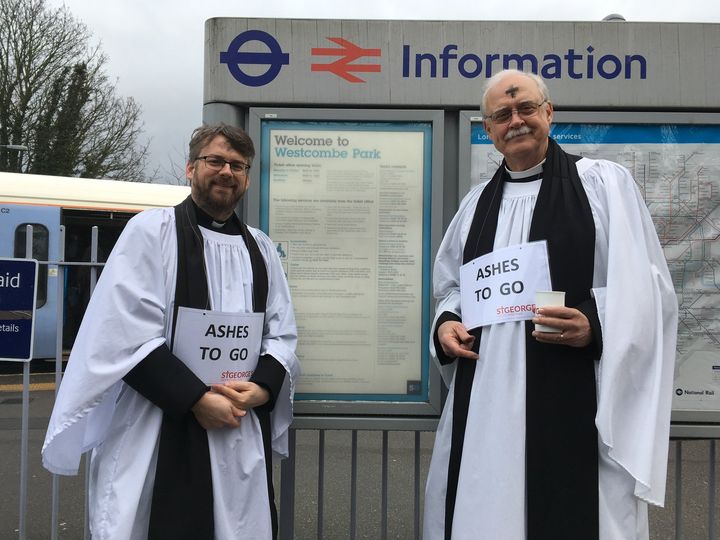The song I picked for today, Ash Wednesday, is “From ashes to ashes, from dust to dust” by Teresa Brown. It’s another cantor-and-chorus hymn (of which there are several in the Sing Praise collection). The chorus is provided in two alternative forms, one for general use and one specifically for Ash Wednesday, which I quote here:
From
ashes to ashes, from dust to dust;
from life through death to eternal life.
Now is the time to turn from sin,
be faithful once more to your God.
The words here echo those of both the sacrament of baptism (dying to sin and rising to new life) and of the funeral rites (“for dust you are, and to dust you shall return: earth to earth, ashes to ashes, dust to dust”). Part of the Lenten discipline is about recognising our own insignificance, as yesterday’s setting of Psalm 131 also reminded us. The act of repentance to which we are called may well not be to confess some particular sinful act, but just to admit that we’ve been living as if God doesn’t exist or is irrelevant to our life, or as if we will live for ever.
Many people find that it’s only as we get old enough to recognise our own mortality that we start to understand our place in life as being dependent on God, and part of a much wider existence both in space and time. Ash Wednesday is one of the few major observances in the Christian year that, even in a nominally Christian country, always falls midweek but is not a public holiday. It is therefore an act of discipline in itself to take time out from work or other responsibilities to attend the ashing ceremony, as a reminder that there are more important things in life than work. This year of course few people will have been able to receive the ashes in person and like myself only joined in an online act of penitence. But here’s a photo of one parish priest who in other years has gone down to his local railway station in the morning rush hour to invite commuters to take a few minutes to be prayed for and receive the ashes on their way to work, as a reminder to themselves and others of their commitment to Christ.

The three verses are Trinitarian in structure, the first reminding us that the God who creates us also loves us and waits patiently for us to return from him. The second is a reminder that Jesus also called people to “repent and believe the good news” (repentance should always be seen as a good thing to do, not a necessary evil). The third calls on the Holy Spirit to “guide our hearts and minds today, that we may repent and believe”.